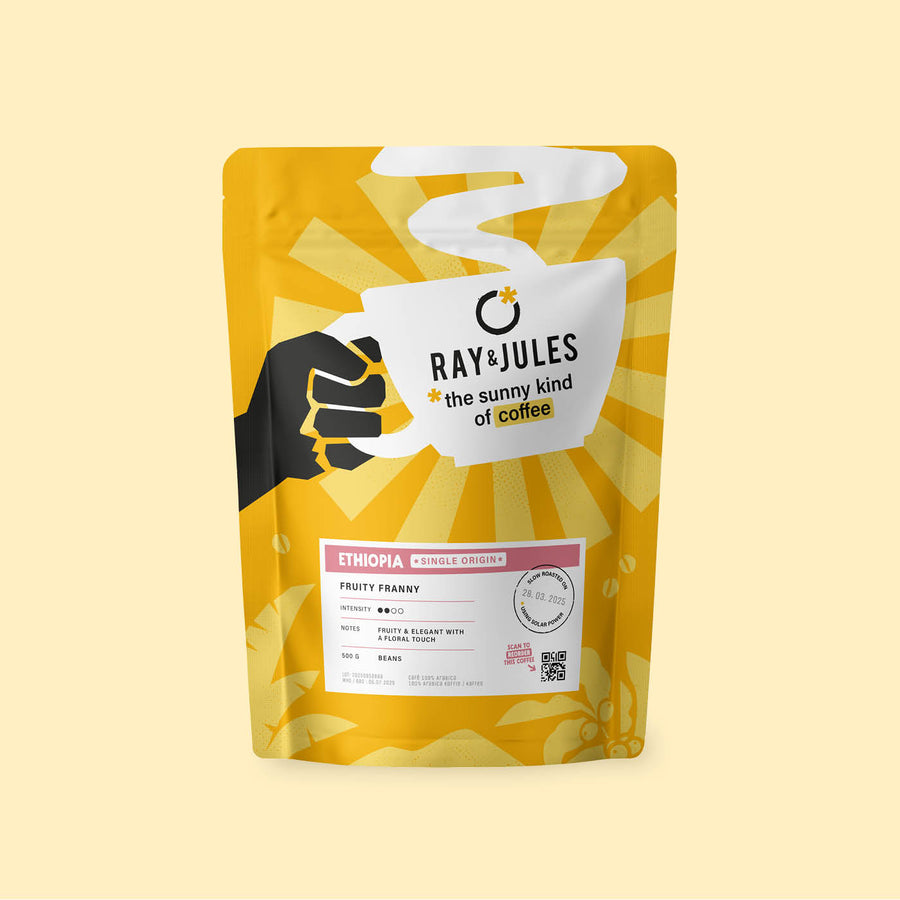How our collaboration began
In 2023, I (Sarah) got into a conversation with our importer This Side Up about their work in Congo. What they told touched me deeply. Not only because I lived in Congo for a time myself, but also because the story of the cooperative there, RAEK (which This Side Up works with), never left me.
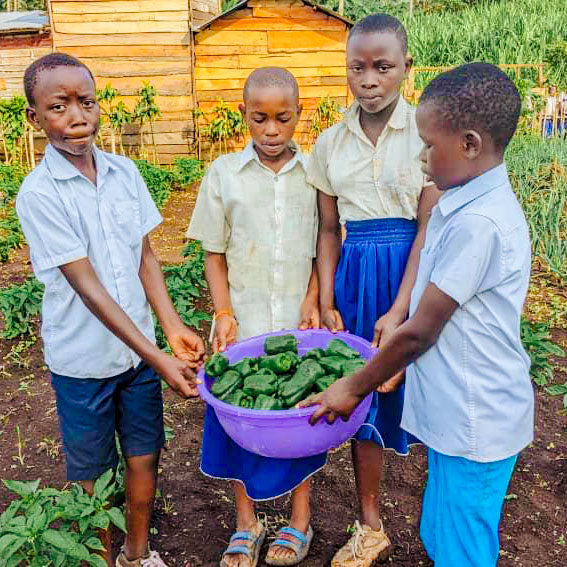
Eastern Congo has long been one of the most difficult regions in the world. War, corruption and insecurity cause many organizations to withdraw, further isolating the local population. Less work, less income, more child labor.
This Side Up decided not to look away. Together with RAEK and a partner organization, they started a project on child labor, using agroforestry (a sustainable form of agriculture in which trees and crops grow together) as a guiding principle.
As a coffee roaster, you can then do two things: distance yourself or get involved. We chose the latter. In January 2024, we launched this coffee under Spicy Sara. The first year we bought 3 tons. The second year that grew to almost 8 tons. With these purchases, families became economically stronger and children were able to go to school.
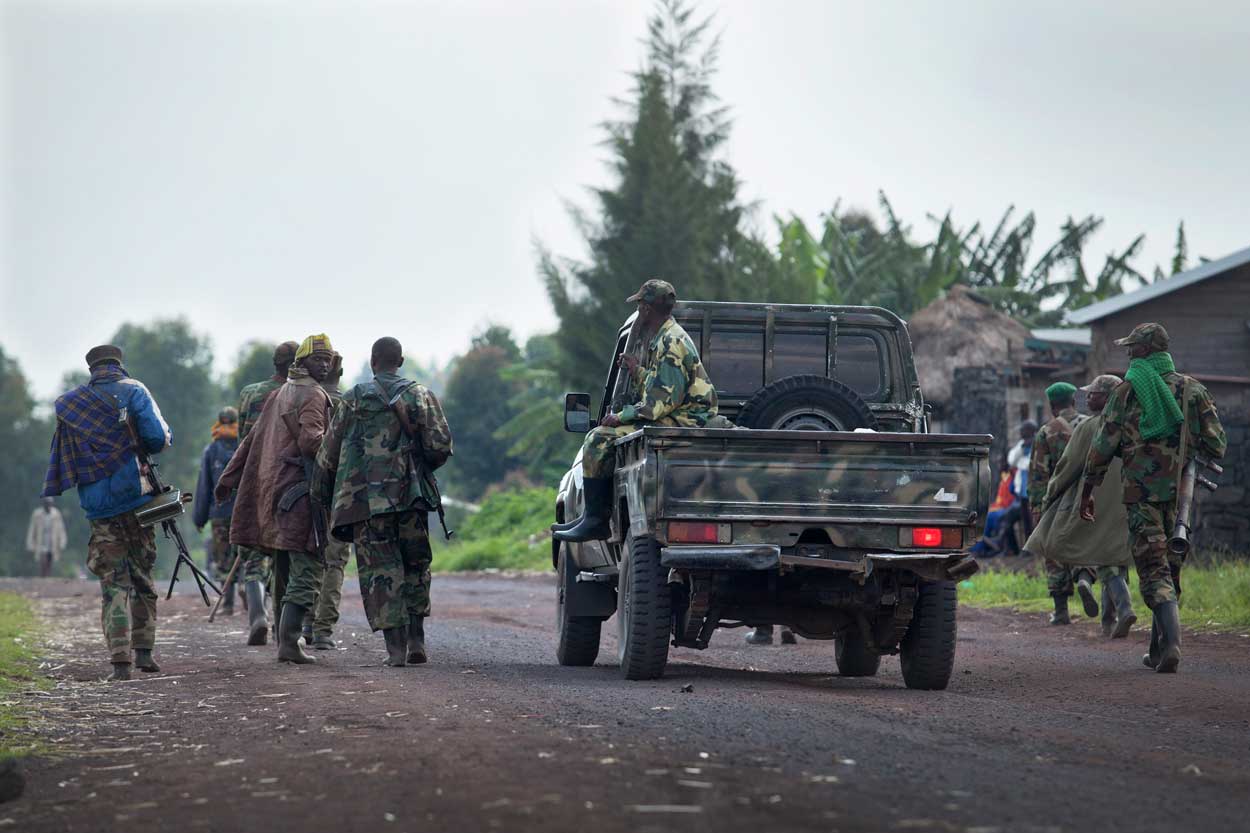
Eastern Congo is once again experiencing one of the world's toughest but least visible humanitarian crises. Since January 2025, violence has escalated. The M23 rebel group, backed by Rwanda, captured strategic cities such as Goma and Bukavu. Bombings claimed more than 3,000 lives, 7 million people fled. Read more reliable info on the conflict here.
For RAEK's coffee farmers, it's a disaster. The 2024 harvest is ready for export in Goma, but cannot get out of the country because of the war and administrative blockades. For months everything has been at a standstill because of the presence of M23 rebels, and in February RAEK's office was ransacked.
The new crop 2025 - ripe coffee berries - is already hanging on the trees. But there are no more farmers to pick them. Many had to leave their plantations and fled to safer areas. So too did Anicet.
Conversation with Anicet Shamavu
A few weeks ago, I contacted Anicet via WhatsApp. He is chairman of RAEK's board of directors. I wanted to hear how the people behind our coffee are really doing. He replied immediately, grateful to be able to share his story. We spoke on the phone. That conversation still resonates today. No words can describe the daily drama, but what stayed with me was the strength in his voice. His hope. His commitment to the farmers. His ideas for moving forward after all.
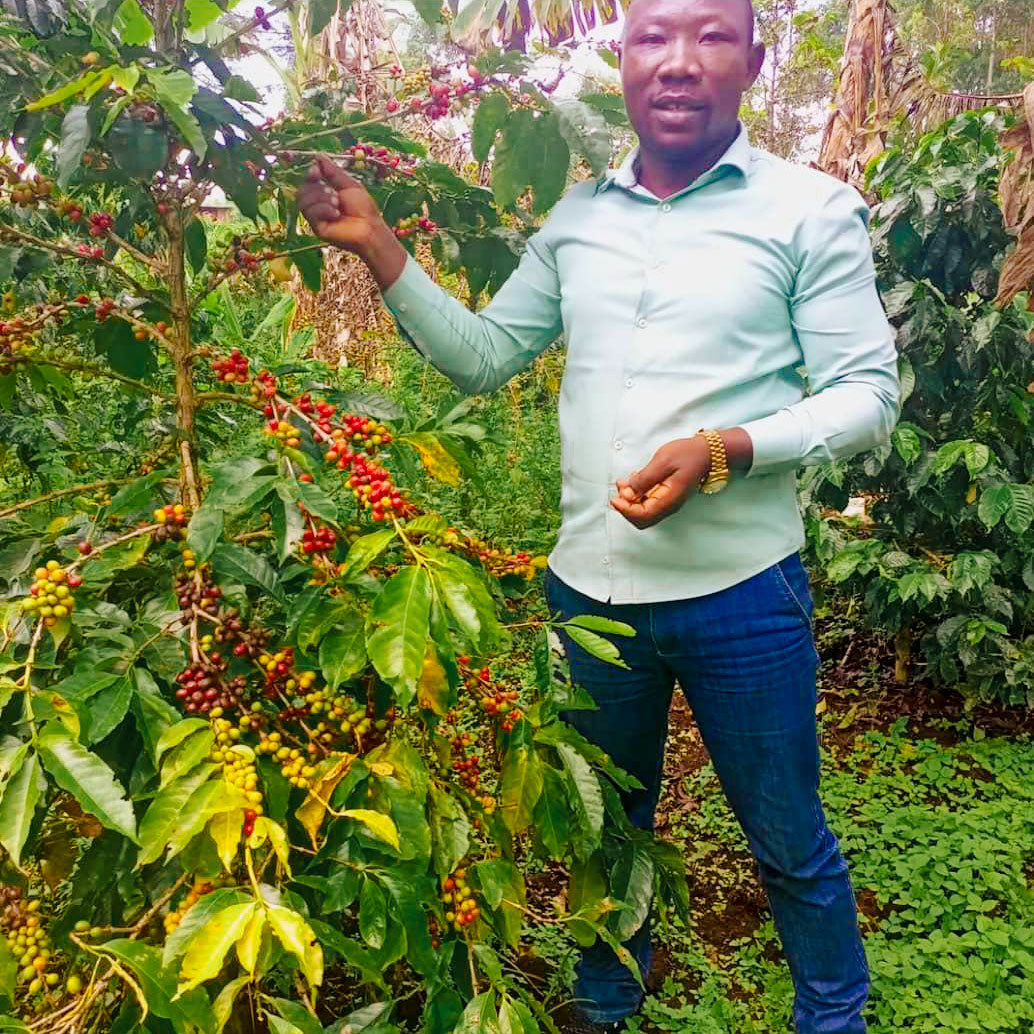
Anicet is 34, owns a plantation himself, but fled to Bukavu with his wife, four children and several other cooperative members. Bukavu is now largely under rebel control. The army has left, as have most of the NGOs. The American support they could count on for years also fell away.
Farmers who were able to flee are gone. Those who stayed live in constant fear. The plantations are often remote - dangerous terrain. Young men are kidnapped and recruited by rebels. Women become victims of violence. People dare not leave their homes. Picking is too risky. And so the source of income falls away.
The child labor project was shut down, but Anicet says that the vegetable gardens that were planted earlier are now vital. Still, the food situation is dire: supplies are often blocked, basic foods like flour and beans have become three times more expensive. Hunger is a daily reality.
Impact on Spicy Sara
The coffee we purchase from RAEK is not there (yet). Sad, but at the same time it is so relative in the light of the war there. We are keeping our fingers on the pulse and hoping the situation turns around. We have found a “temporary” solution with This Side Up and are partnering with a group of Rwandan farmers; similar flavor profile, meaningful project, reliable cooperative. Meanwhile, we are maintaining our relationship with RAEK and the goal of buying coffee from them again remains.
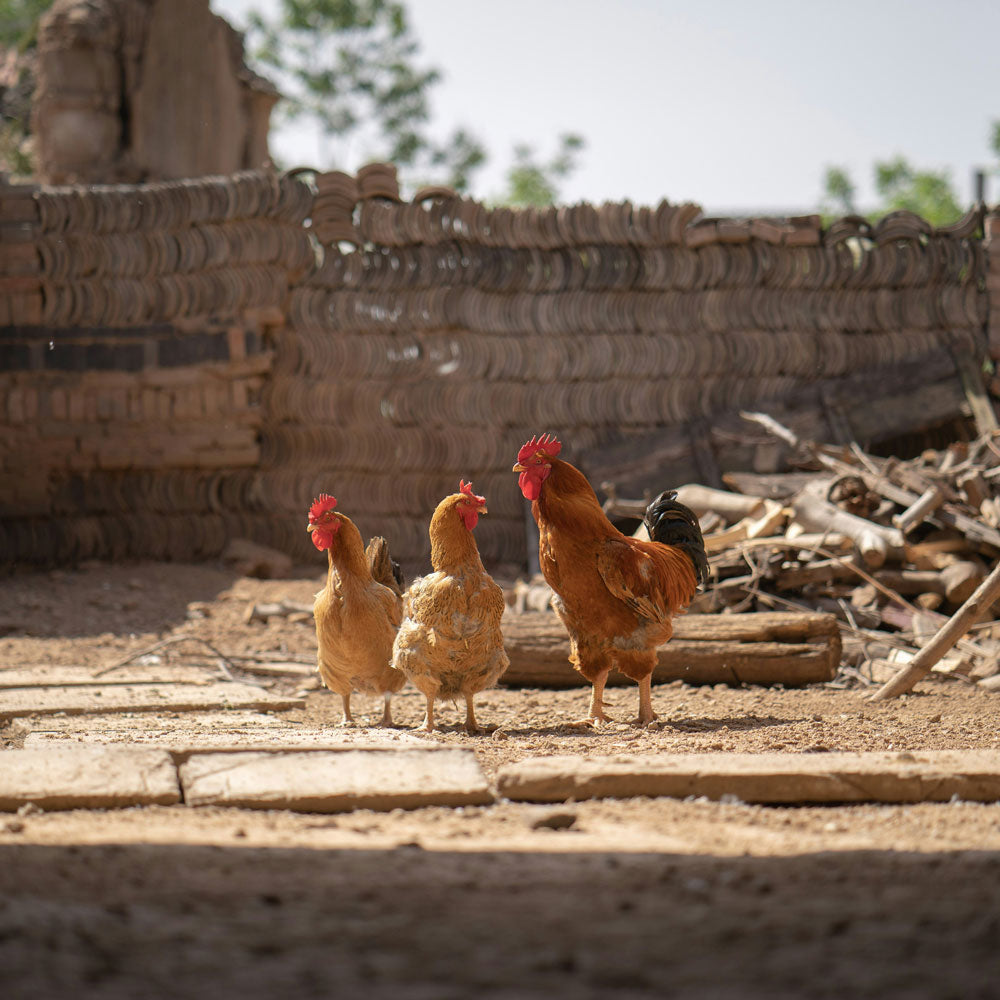
Donate a chicken, give hope
At Ray&Jules, we believe that every step counts, no matter how small. During our conversation, Anicet shared his idea. Together with RAEK, we want to do something concrete for farming families in eastern Congo: donate laying hens. A chicken means protein-rich food, eggs to sell, manure for the garden and a bit of hope. For €10 you can donate a laying hen.
Our partner takes care of purchase, distribution and follow-up, so that your support really arrives. From €40 per year your gift is tax deductible. So you not only get a lot of chickens for your money, but also a tax certificate that gives you a tax advantage 😊.
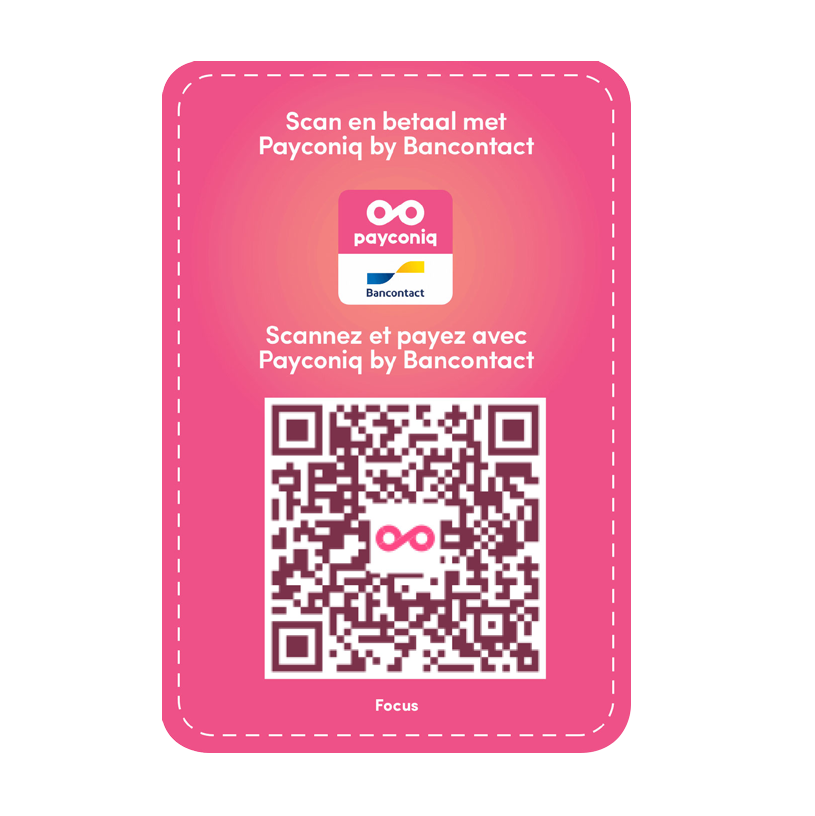
Donate a chicken
Watch Anicet's video message below!
Scan the QR code with your banking app, you will immediately get the details of Focus vzw, enter your desired amount and write as message “R&J”.
With a small donation to this project, you help an affected family regain access to food and a source of income - a first step to rebuilding.
By doing this through Focus vzw, we can also issue a tax certificate (from €40)! Do you want a certificate? Send an email with your social security number to Sarah or info@focus-vzw.eu.
Pas de QRcode ? Utilisez le compte Focus BE90 5230 8064 1532 (Triodos).
A video message from Anicet:
Anicet Ntamulumeyene, president of the agricultural cooperative RAEK in Congo, addresses Ray&Jules' customers in Belgium. He thanks them for their support and asks that it continue - not only by continuing to drink coffee, but also through the chicken project.
By buying a chicken, customers help small coffee farmers in Congo survive during this difficult period. Thanks to this support, they can now provide for their families, and soon return to growing coffee. Anicet emphasizes that this project saves lives while making quality coffee possible. Every contribution counts.
More on the Emergency Project
RAEK wants to help 100 severely affected families in the Kabare area (Katana, Luhihi, Bugorhe, Miti and Bushumba sectors) with a sustainable and feasible emergency project: setting up small-scale livestock rearing of laying hens and guinea pigs.
These animals are quick to breed, provide food as well as income in the short term, and can make a crucial difference in the daily lives of these families.
What will each family receive?
- 3 3laying hens (for eggs and meat)
- 5 guinea pigs (an excellent source of protein)
- 2 kg of starter feed
- A short training course on animal care and feeding
Our goals
- Restoring families' access to healthy protein-rich food G
- enerating income through egg or young animal sales
- Returning families to self-sufficiency while waiting to return to their coffee plantations
Why this project works
- The start-up is simple and quick
- The animals are adapted to local conditions
- Eggs and meat are locally valuable and easily marketable
- The project provides direct relief of humanitarian need
How to help
For just €15 to €30 you are already helping a family with a starter pack of animals. Your support means:
- A meal on the table for children
- A future perspective for parents
- A step towards independence for the whole community
Don't leave farmers to their fate. Help give families strength again - with something as simple as a laying hen.

